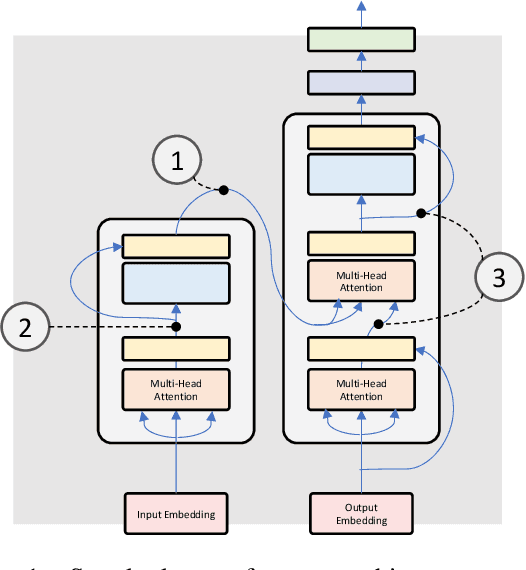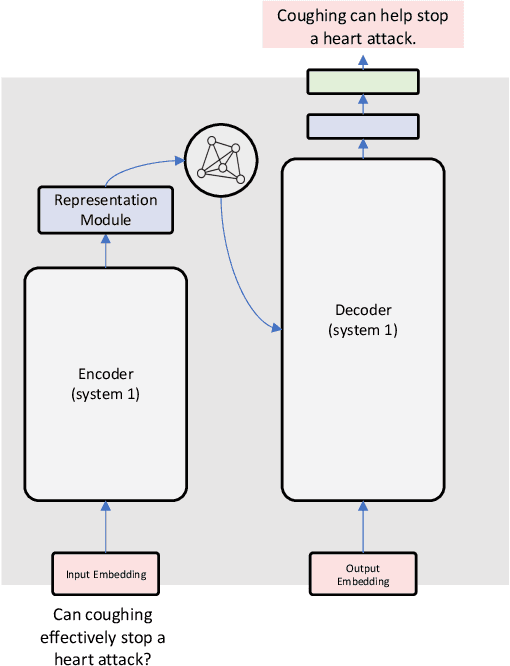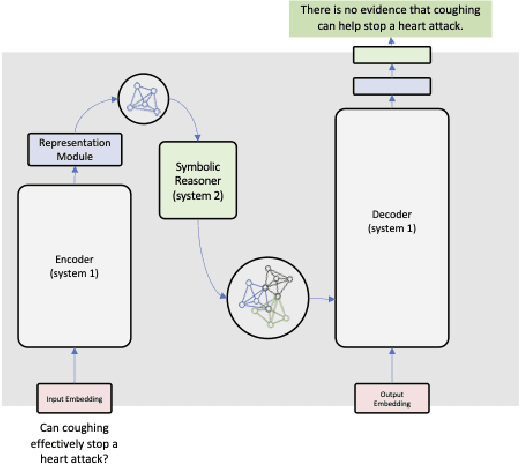Artur D'Avilla Garcez
Graph-based Neural Modules to Inspect Attention-based Architectures: A Position Paper
Oct 13, 2022


Abstract:Encoder-decoder architectures are prominent building blocks of state-of-the-art solutions for tasks across multiple fields where deep learning (DL) or foundation models play a key role. Although there is a growing community working on the provision of interpretation for DL models as well as considerable work in the neuro-symbolic community seeking to integrate symbolic representations and DL, many open questions remain around the need for better tools for visualization of the inner workings of DL architectures. In particular, encoder-decoder models offer an exciting opportunity for visualization and editing by humans of the knowledge implicitly represented in model weights. In this work, we explore ways to create an abstraction for segments of the network as a two-way graph-based representation. Changes to this graph structure should be reflected directly in the underlying tensor representations. Such two-way graph representation enables new neuro-symbolic systems by leveraging the pattern recognition capabilities of the encoder-decoder along with symbolic reasoning carried out on the graphs. The approach is expected to produce new ways of interacting with DL models but also to improve performance as a result of the combination of learning and reasoning capabilities.
 Add to Chrome
Add to Chrome Add to Firefox
Add to Firefox Add to Edge
Add to Edge